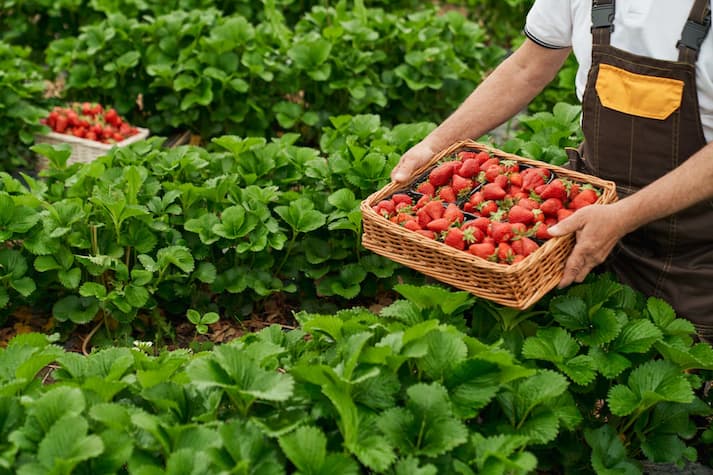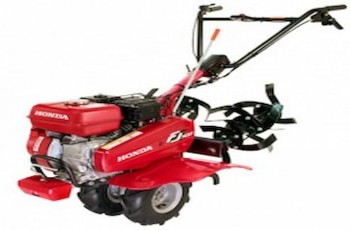8 Differences between Agriculture and Plantation
21 November 2023

You must be familiar with what is meant by agriculture and plantations. However, are you familiar with the difference between agriculture and plantations? These two industries have almost the same way of working. Basically, there are many differences that you need to know.
That's why you needs to recognize the difference between the two in terms of both the plant and the business scale and management. In this article, Honda Power will share some of the differences between agriculture and plantations in detail. Make sure you read the following information to the end.
8 Differences between Agriculture and Plantation
Agriculture and plantations are two main sectors in the agricultural industry that often confuse many people. Are they the same? Despite some similarities, these two sectors have some crucial differences you should know. Here are 8 important differences between agriculture and plantations:
1. Types of Plants
In agriculture, the crops grown are usually related to local needs, such as vegetables, fruits, industrial raw materials, or food raw materials. Meanwhile, in plantations, the crops grown are usually related to global markets, such as oil palm, rubber, tea or coffee.
In some areas, farms may also specialize in growing ornamental, medicinal or unique plants with high selling value. In plantations, the plants planted can also be related to the entertainment market, such as garden plants or bonsai plants.
It is important to understand the types of crops grown in agriculture and plantations, as these affect factors such as yield, level of management complexity and environmental impact.
Read also: 5 Differences between Traditional and Modern Agriculture
2. Business Scale
The scale of agricultural and plantation businesses can vary depending on factors such as the size of the land, available resources, and the level of investment made. In agriculture, the scale of a business can range from small farmers owning small plots of land to large agricultural companies owning thousands of hectares of land.
Whereas in plantations, the business scale can range from small plantations that only have a few hectares of land to large plantation companies that own tens of thousands of hectares of land.
The scale of the plantation business can also vary depending on the crop type because some crops require a larger area of land than others.
3. Planting Method
In agriculture, the methods used can range from traditional methods, such as natural cultivation, to modern methods, such as high-technology intensive farming systems.
Whereas in plantations, the cultivation methods can range from traditional methods, such as natural cultivation, to modern methods, such as intensive plantation systems using high technology. Planting methods in plantations can also vary depending on the plant types, such as monoculture or forest plantation systems.
4. Resources
Agriculture usually requires natural resources such as water, land, sun, and human labour. Meanwhile, plantations require greater natural resources, technology and capital. However, regarding technology, agriculture is now widely used to speed up performance and harvest time. Even so, the results are still the same perfect and maximum.
5. Business Purpose
Agriculture has the goal of meeting the needs of food and raw materials for the community, as well as obtaining income. Meanwhile, plantations aim to generate income from selling local and international crop products.
6. Environmental Impact
Agriculture usually has less environmental impact, using more natural and environmentally friendly methods. Meanwhile, plantations have a greater environmental impact, mainly due to the more intensive use of technology and chemicals.
7. Market and Distribution
As previously stated, agricultural products are more targeted at local markets by distributing them to local markets or selling directly to consumers to meet community needs. Meanwhile, plantations have a broader market, with crops distributed to various countries and global markets. However, consider plantation products are also targeting the local market.
8. Governance and Management
Farms are usually managed and developed by individuals or families with simpler governance. Meanwhile, plantations are generally managed and developed by large companies or corporations with more integrated and professional governance.
By understanding the differences between agriculture and plantations, you can better understand how these two sectors function and help meet the needs of society.
Therefore, the government and society need to pay attention to and improve the quality of these two sectors to meet the needs and obtain optimal benefits.
The first step that can be taken to support larger agricultural and plantation products with better quality is to equip agricultural and plantation equipment with quality tools. No need to be confused because Honda Power is here to help you in every agricultural and plantation process.
To ensure that the land to be used for planting is in optimal condition, you, especially those in the agricultural sector, need a reliable quality tractor.
Honda Power designs its tractors with easy-start, commercial-grade GX series engines. In addition, this machine also provides sufficient power even in harsh ground conditions. There's no doubt about it, find the best and most trusted tractor according to your needs only at Honda Power Products.

Honda Power Products Indonesia
Honda Power Products menyediakan mesin serbaguna, generator, pemotong rumput, pemotong sikat, pompa air, dan mesin tempel.

